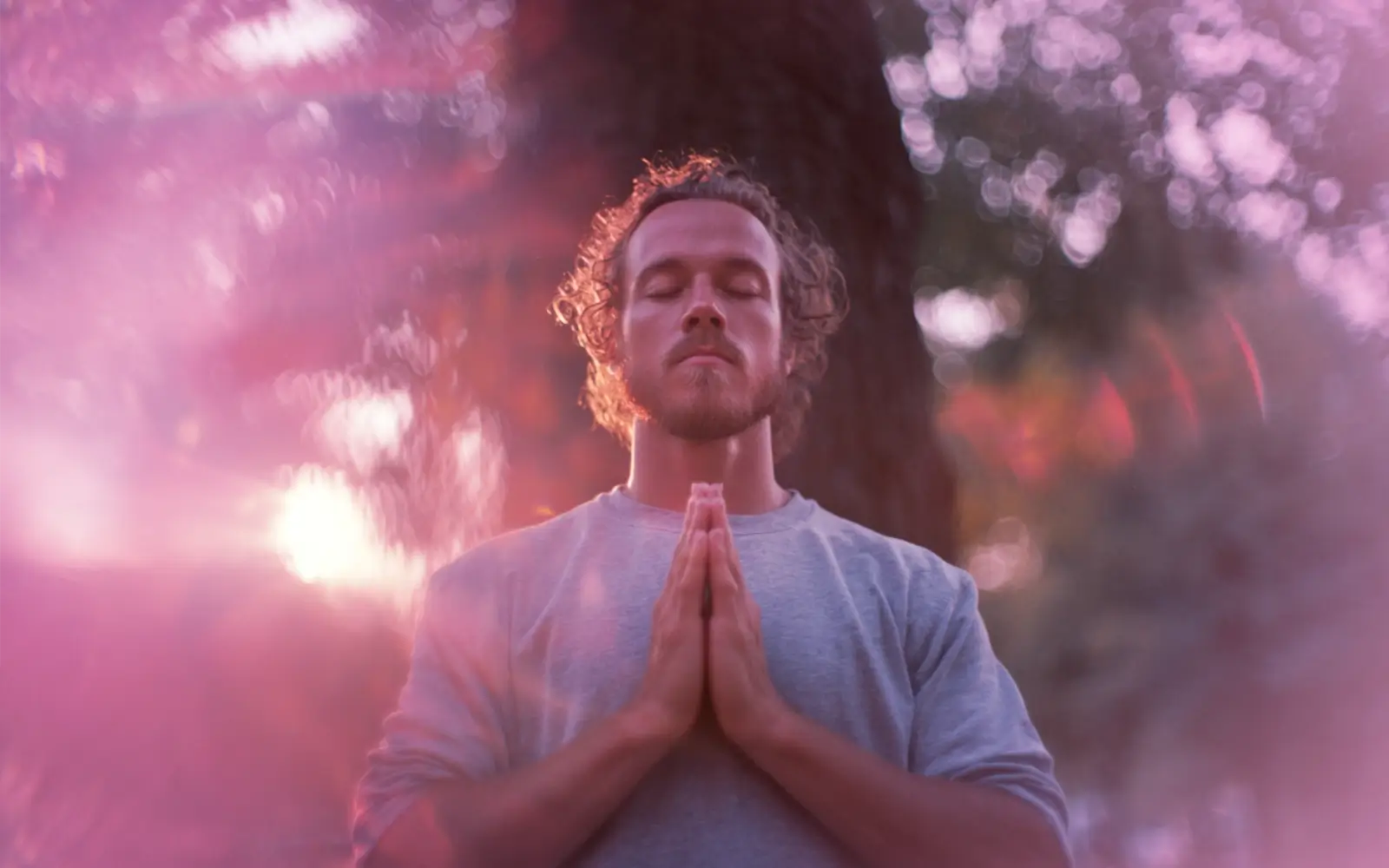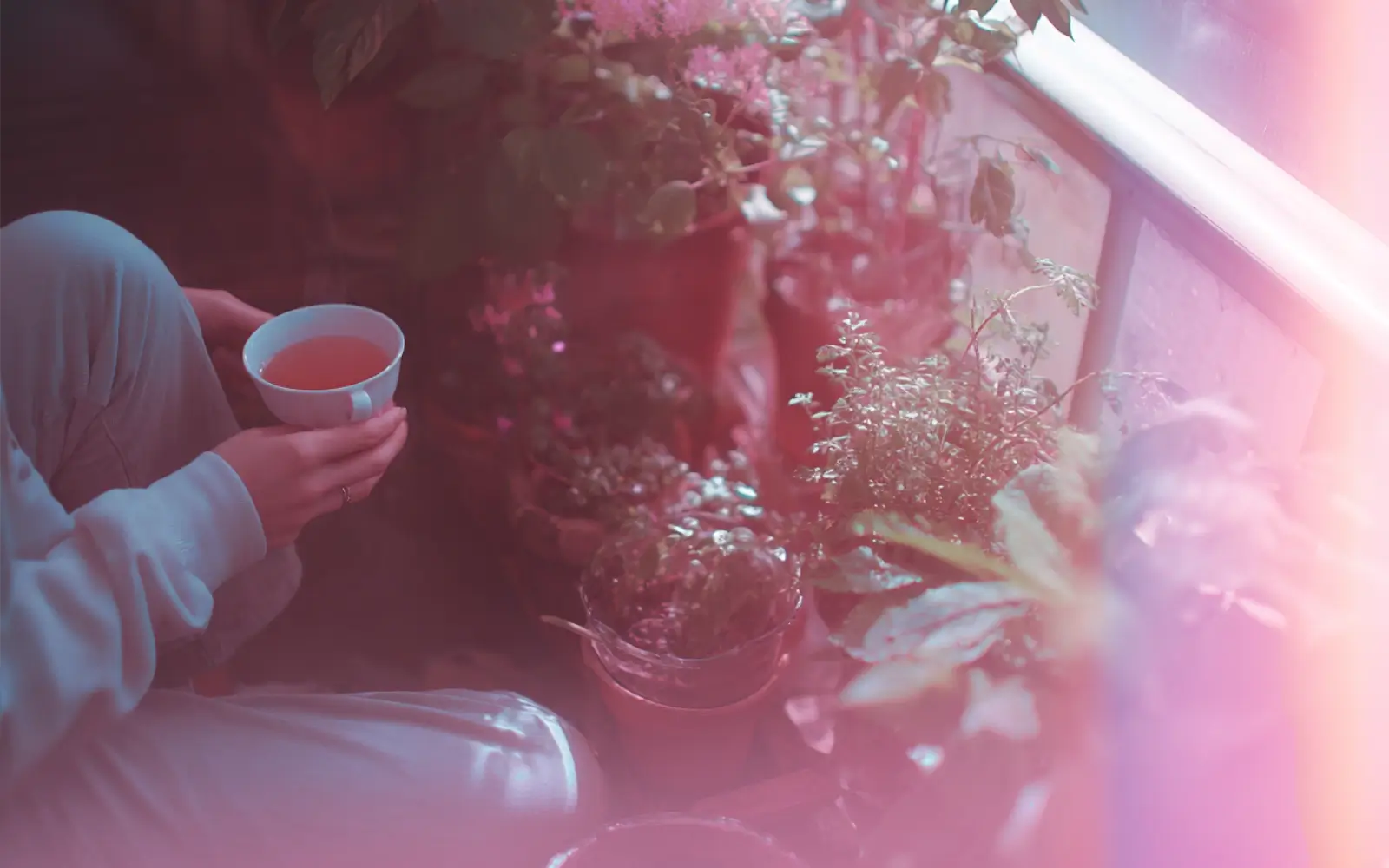Nature plays a significant role in reducing stress and enhancing overall well-being. Spending time outdoors—whether in a park, forest, or even a garden—can lower stress hormones, improve mood, and promote relaxation. Studies show that natural environments can decrease anxiety, reduce feelings of anger, and even lower the risk of depression.
Inside this article:
TL;DR
When was the last time you felt truly at peace? For many of us, that feeling surfaces most naturally when we’re surrounded by greenery, breathing fresh air, or listening to water flow. This isn’t just coincidence—it’s your body and mind responding to what they need most. The science behind nature’s role in reducing stress and enhancing wellbeing is clear . Just two hours per week in nature rewires your brain for calm, boosts immunity, cuts stress, enhances creativity, and reduces heart disease. Start simple, spending just 5-10 minutes outside daily, these small, consistent nature doses will restore your wellbeing.

1. Why Does Nature Make Us Happy?
Exposure to natural patterns, light, and colors triggers the release of feel-good brain chemicals like dopamine and serotonin. Humans evolved in natural environments, so our brains are inherently attuned to nature. This connection helps explain why spending time outdoors feels like a mental “reset.” People who regularly spend time near trees or water report higher happiness and lower stress levels.
Isn’t it fascinating how our bodies instinctively know what they need? Your brain doesn’t just appreciate nature—it craves it. Here’s what happens when you step outside:
Your brain’s nature response:
- Chemistry boost: Dopamine, serotonin, and endorphins increase while cortisol drops
- Safety signal: Your nervous system recognizes natural environments as safe spaces
- Visual calm: Natural patterns (fractals, flowing water) naturally soothe your brain
- Circadian reset: Natural light regulates sleep cycles and energy levels
The most remarkable part? Even photographs of nature can trigger these responses, though nothing compares to the real experience.
For those interested in diving deeper into the science of happiness and wellbeing, The Science of Happiness: What Really Makes Us Content explores these neurochemical connections in greater detail.

2. Nature’s Effect on the Brain
Research shows that time in nature reduces activity in the prefrontal cortex—the brain region linked to rumination and overthinking. This shift allows our minds to move from stress and anxiety toward restoration and calm. For example, a Stanford study found that participants who walked in a green space had reduced anxiety compared to those who walked in urban settings.
What’s happening in your brain when you spend time in nature is nothing short of remarkable. Scientists have discovered specific neural pathways that explain why a simple walk in the park can feel like hitting a mental reset button.
Brain changes from nature exposure:
- Attention restoration: Nature allows focused attention to recover through “soft fascination”
- Stress reduction: The amygdala (fear center) becomes less reactive
- Mental clarity: Default brain networks become more organized and less chaotic
- Cognitive boost: Even 40 seconds of nature views improve mental performance
Research shows a 90-minute nature walk significantly reduces rumination compared to urban walks, with brain scans revealing decreased activity in worry-prone brain regions.
The beauty of this science is that you don’t need to understand it to benefit from it. Your brain will do the work—you just need to provide the natural environment.
Those exploring how different practices affect mental performance might find value in Mindfulness and Meditation for a More Balanced Life, which complements nature’s restorative effects.

3. Mental Health Benefits of Nature
Nature exposure is linked to lower rates of depression, anxiety, and mood disorders. It acts as a natural mood stabilizer and mental health enhancer. For individuals managing mental health challenges, nature-based therapies like ecotherapy and forest bathing have proven effective. Veterans with PTSD, for instance, have found healing through outdoor programs.
You might be surprised to learn that spending time in nature can be as effective as some traditional mental health interventions. The emotional benefits extend far beyond momentary relief—they create lasting improvements in psychological wellbeing.
Emotional and mental health benefits of nature:
- Depression relief: Regular exposure reduces symptoms significantly
- Anxiety reduction: Levels drop significantly after just 20 minutes outdoors
- Trauma healing: Veterans with PTSD report substantial symptom reduction after nature programs
Nature-based therapies work by interrupting negative thought patterns, boosting mood-supporting neurotransmitters, and providing perspective during overwhelming emotions.
Remember, nature isn’t a replacement for professional mental health care, but it’s a powerful complement that’s accessible and free.
For comprehensive approaches to emotional wellbeing read, “Self-Compassion” by Kristin Neff offers additional strategies that work beautifully alongside nature-based healing.

4. Physical Health Benefits of Being in Nature
Time spent in green spaces also benefits physical health. It improves cardiovascular health, lowers blood pressure, boosts immune function, and enhances sleep quality. Studies show that hospital patients with views of nature recover faster and require less medication.
Your body responds to nature with measurable physical improvements that go far beyond stress relief. These aren’t subtle changes—they’re significant enough that hospitals now incorporate nature views and gardens into healing environments.
Physical benefits of nature:
- Heart health: Lowers blood pressure, improves heart rate variability, cuts heart disease risk by 16%
- Immunity: Boosts natural killer cells with immune benefits lasting up to 30 days
- Sleep: Enhances melatonin production, deepens rest, and aligns circadian rhythms
- Recovery: Hospital patients with nature views recover faster and need less pain medication
- Vitality: Increases vitamin D, improves respiratory function, and strengthens seasonal resilience
The research is so compelling that doctors in some countries now prescribe “nature therapy” alongside traditional treatments.
Those interested in optimizing physical health might appreciate Physical Wellbeing: Nutrition, Sleep, and Exercise for Optimal Health, which explores how nature exposure enhances these fundamental health pillars.

5. How Nature Reduces Stress and Anxiety
Nature lowers cortisol levels, slows heart rate, and triggers the body’s relaxation response. In Japan, forest bathing (Shinrin-yoku) has been shown to reduce stress hormones in just 15 minutes. Further research suggest that as little as 1-10 minutes of exposure to nature can boost attention and deliver positive benefits that last hours.
Natural environments calm both the mind and body simultaneously, offering even brief exposure as a powerful antidote to stress.
What if you could access a stress-reduction technique that works faster than most medications and has zero side effects? You can—and it’s waiting outside your door.
Nature’s stress-busting power:
- Hormone reset: Cortisol drops 15-25% within 20 minutes; effects last hours
- Nervous system shift: From fight/flight to rest/digest mode
- Anxiety relief: Natural sounds, smells, and textures distract from anxious thoughts
How to naturally reduce stress:
- Water settings: Best for overwhelming emotions and racing thoughts
- Forests: Ideal for general stress and mental fatigue
- Open spaces: Helpful for feeling trapped or confined
- Mountain views: Effective for gaining perspective on problems
Even if you can’t access pristine wilderness, any natural element helps. A single tree, patch of grass, or potted plant can begin the stress-reduction process.
For those developing comprehensive approaches to stress management, Stress Management: Finding Balance in a Fast-Paced World offers additional techniques that complement nature’s calming effects.

6. How Nature Unlocks Imagination and Creativity
Spending time in natural environments boosts divergent thinking and problem-solving abilities. Nature creates mental space for the brain to wander and make new connections. A study showed that people immersed in nature for four days scored 50% higher on creativity tests than those in urban environments.
Have you ever noticed how your best ideas often come during walks or while sitting by water? That’s not coincidence—it’s your brain operating in its most creative state.
Nature’s creativity boost:
- Enhanced thinking: 50% improvement in creative problem-solving after nature immersion
- Mental wandering: Perfect setting for productive daydreaming and breakthrough ideas
- Pattern inspiration: Natural forms stimulate new ways of seeing problems
- Reduced inhibition: Outdoor settings encourage exploration of unconventional solutions
Creative benefits by environment:
- Forests: Deep thinking and complex problem-solving
- Water bodies: Flow states and artistic inspiration
- Gardens: Structured creativity and planning
- Wild landscapes: Breakthrough thinking and innovation
Take brainstorming sessions outside, keep a nature journal, or schedule outdoor time before creative projects. Many history’s greatest innovators credited nature with their breakthroughs.
Those looking to enhance their creative abilities might find Creativity: Unlocking the Power of Original Thinking a valuable complement to nature-based creative practices.

7. Simple Ways to Add Nature Into Your Life
Just two hours per week in nature can significantly improve overall health. Nature doesn’t require wilderness trips; it’s accessible in small, everyday moments. Eating lunch outside, walking in a local park, tending to houseplants, or simply sitting by a window with a view of greenery can all contribute to stress relief and wellbeing.
You don’t need to become a wilderness adventurer to reap nature’s benefits. The beauty lies in how accessible these wellbeing boosts can be, even in urban environments or busy schedules.
Easy nature integration:
- Daily micro-moments: Morning coffee outside, walking meetings, lunch breaks in green spaces
- Indoor nature: Houseplants, nature sounds, natural light positioning, fresh flowers
- Urban discoveries: Pocket parks, rooftop gardens, tree-lined streets, waterfronts
- Weekend rituals: Farmers markets, hiking trails, botanical gardens, nature photography
The two-hour weekly minimum can be broken into small segments—consistency provides more benefit than occasional long exposures. Even one houseplant or five minutes outside between tasks contributes to your wellbeing.
Remember, the goal isn’t perfection—it’s consistency. Small, regular doses of nature create more lasting benefits than sporadic wilderness adventures.
For those interested in building sustainable wellbeing practices, Building a Wellbeing Routine: Habits for Mental and Physical Health provides a framework for incorporating nature time into your overall health strategy.

8. Build Nature into Your Wellbeing Routine
Consistent time in nature builds resilience and life satisfaction. By integrating nature into your identity and lifestyle, you create a sustainable source of wellbeing. Rituals like weekend hikes, morning walks, or keeping a nature journal can help make nature a lasting part of your life.
The real transformation happens when nature time becomes as automatic as brushing your teeth—a non-negotiable part of your wellbeing routine rather than something you squeeze in when convenient.
Building lasting nature habits:
- Start small: Begin with 10 minutes daily rather than ambitious weekend plans
- Stack habits: Attach nature time to existing routines (coffee + outdoors)
- Create rituals: Morning outdoor meditation, evening sunset walks, weekend adventures
- Build identity: Think of yourself as “someone who spends time outdoors”
- Track benefits: Notice improvements in sleep, mood, and stress levels
Making it sustainable:
- Adapt activities based on seasons and weather
- Choose gentle nature activities during low-energy periods
- Find flexibility—even 5 minutes provides benefits
- Connect to other wellbeing practices you already maintain
The goal is creating a relationship with nature that sustains you through all of life’s seasons—literally and figuratively.
For those developing comprehensive approaches to personal wellbeing, Holistic Wellbeing: How to Create Balance in Mind, Body, and Soul explores how nature practices integrate with other wellness dimensions.
Key Takeaway: Sustainable wellbeing comes from making nature time a routine, not an exception. Build flexibility into your practice so it can weather life’s changes.
Your Next Steps into Nature
Nature isn’t just a place to escape—it’s a place to restore and grow. You don’t need to overhaul your lifestyle—just add small, intentional interactions with nature into your daily activities to build better nature habits.
How to build nature into your wellbeing routine:
- Micro-moments: Step outside for five minutes between tasks. Breathe deeply. Observe.
- Nature rituals: Make a walk part of your morning or evening routine.
- Creative time: Brainstorm or journal outdoors instead of at your desk.
- Work breaks: Take your coffee or lunch to a nearby green space.
- Indoor nature: Add houseplants, nature sounds, or window views to your environment.
- Weekend connection: Plan a short hike, visit a botanical garden, or go to the beach.
To make this sustainable, try building a “nature practice”—not as a chore, but as a restorative habit. Like meditation or exercise, it becomes more impactful when done consistently. Start small, step outside, and let nature help you reduce stress and enhance wellbeing every day.
Reconnect with nature!
Take that first step outdoors and let nature do what it does best — restore, inspire, and reconnect you to what truly matters. Whether it’s five minutes under a tree or a weekend hike in the wild, every moment spent in nature is a step toward clarity, calm, and a healthier, more grounded you.
Related articles
Building a Wellbeing Routine: Habits for Mental and Physical Health
Create sustainable daily practices that support your mental and physical health for long-term wellness.
Physical Wellbeing: Nutrition, Sleep, and Exercise for Optimal Health
Learn how outdoor activities and nature exposure enhance your nutrition, sleep quality, and fitness routine.
Self-Compassion: The Foundation of Mental Wellbeing
Develop a kinder relationship with yourself while building emotional resilience through nature-based practices.
Further reading
“The Nature Fix” by Florence Williams
Explores the scientific evidence behind nature’s healing power and how different cultures use nature for wellness.
“Breath: The New Science of a Lost Art” by James Nestor
Reveals how proper breathing in natural environments can transform your health and reduce stress.
“The Body Keeps the Score” by Bessel van der Kolk
Demonstrates how nature-based therapies can help heal trauma and restore mental wellbeing.





